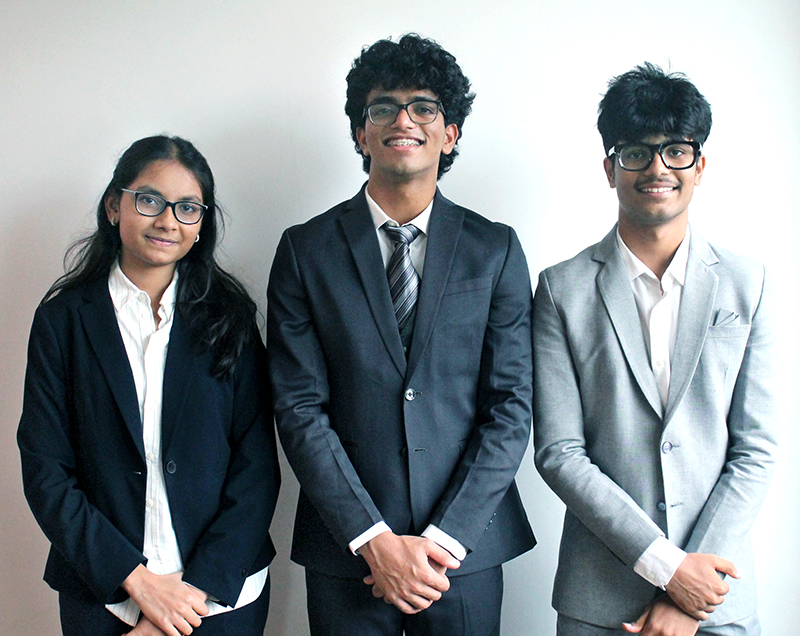
Head Chair of SPECPOL: Avik Bajaj
Deputy Chairs of SPECPOL : Lavanya Gupta and Kush Batavia
“The struggle against colonialism is not over, and we are not giving up.”
- Mahmoud Abbas
Dear Delegates and MUN Directors,
SPECPOL, the fourth GA committee, is a forum for addressing complex global challenges, where the ideals of self-determination, human rights, and peaceful coexistence confront the realities of power politics, historical grievances, and emerging threats.
Delegates are tasked with understanding these complexities and actively shaping solutions for our collective future. The agendas selected this year reflect the dynamic nature of global affairs, emphasizing areas where international cooperation is absolutely essential.
Our first agenda, “Addressing the issues of political stability and human rights violations in Myanmar,”.The NLD (National League for Democracy) was voted into the government during the 2020 general elections, a significant step toward democracy after years of military rule in Myanmar. However, this progress was swiftly undone in 2021, when the Tatmadaw, Myanmar's armed forces, launched a coup d'état, baselessly claiming that the 2020 general elections were illegitimate. They established and maintained a de facto military government by repeatedly enforcing a state of emergency, delaying elections. They have maintained their political power by suppressing dissent through fear, violence, and censorship. Political leaders like Aung San Suu Kyi have been detained without due process, and peaceful protests met with arbitrary arrests, torture, and extrajudicial killings. Furthermore, large-scale violence against ethnic minorities, particularly the Rohingya community, persists, leading to widespread displacement and severe abuses. Resolving this crisis is paramount for restoring democratic governance, safeguarding human rights, and preventing further ethnic and political violence in Myanmar.
The second agenda is “Addressing the Governance and security crisis in Burkina Faso”. This country has been facing one of the worst humanitarian and political crises for decades now. Over 40% of the country is controlled by jihadist groups like Al-Qaeda and ISIS which is why their government is struggling to maintain sovereignty and stability. To add on, these violent insurgencies have led to sieges in villages which have left over a million citizens displaced. Moreover, the government is unable to control these groups and have cost the lives of many innocent people, accused of massacres in the name of counter-terrorism efforts. Now, French troops have withdrawn from the state, causing a security vacuum and Russia’s influence on the country increases, through the Wagner Group. A group which is known for killing civilians and plundering natural resources from their host countries. By addressing this crisis, we have the opportunity to prevent the collapse of the state, protect civilians and stabilize the country.
The third agenda is “Addressing the Amhara Region Situation in Ethiopia.” At present, an internal conflict between the Ethiopian National Defence Force (ENDF) and the Fano militia, originally started in mid-2023, is rapidly worsening. Due to ongoing ethnic and political differences and recent actions by the federal government to demobilize the regional special forces, many in Amhara feel their rights and security are being attacked. For this reason, many civilians have been displaced, individuals have been arrested without warrant, reportable killings have become common, and both medical and educational services have been seriously disturbed in the area. Because of the central authority’s firm response and trouble between national and regional groups, the situation has become more serious. If not dealt with, the situation risks changing Ethiopia’s federal structure and leading to more ethnic conflicts. The agenda calls for SPECPOL to play a role in helping restore peace, defending civilians, and promoting talks to tackle East Africa’s biggest humanitarian and political challenge.
Warm Regards,
Avik Bajaj
Head Chair of the Special Political and Decolonization Committee,
Lavanya Gupta and Kush Batavia
Deputy Chairs of the Special Political and Decolonization Committee
DAIMUN 2025